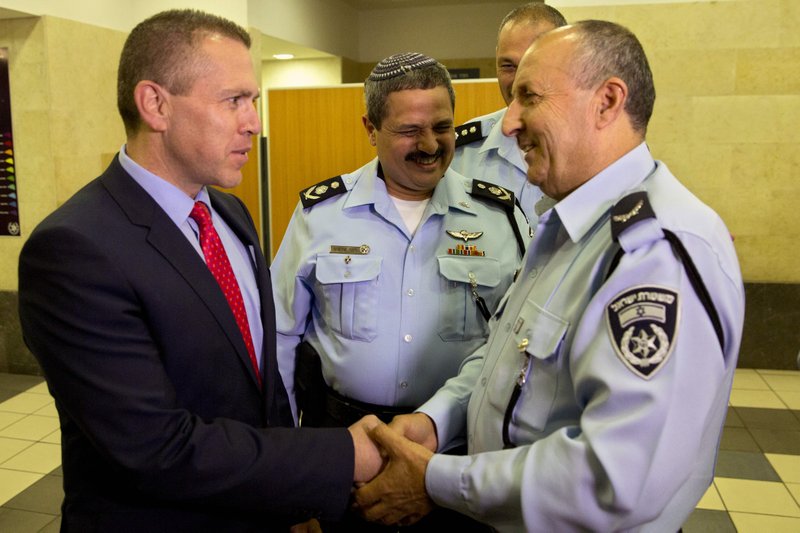TEL AVIV, Israel -- Israel promoted an Arab police officer to deputy commissioner Wednesday, making him the highest-ranking Muslim ever to serve in the force.
In his new position, 59-year-old Gamal Hakroosh faces an uphill battle overseeing policing in Arab communities, where residents are deeply suspicious of Israeli police. Many Israeli Arabs feel their community is discriminated against and stigmatized, and often view Israeli police with hostility and fear.
Israel's Arab minority, which makes up a fifth of the country's population of 8 million, has long had a fraught relationship with the Jewish majority. They hold full citizenship rights, but some Israelis, including top politicians, question their loyalty because they often side with their Palestinian brethren. The Israeli Arabs are generally poorer and less educated than Jews and suffer from discrimination and substandard public services.
In turn, a lack of effective policing in Arab communities -- where crime is rampant and often left unchecked by police -- has fueled tensions further. Arabs often accuse the police of being indifferent to Arab crime so long as the Jewish population is not affected.
With Hakroosh's promotion, and the approval this week by Israel's Cabinet of a plan to step up law enforcement in Arab areas, Israel is hoping to change that perception.
"To this day, we did not grant the Arab sector equal law enforcement services. In everything related to the police, we did not act with due equality," Israeli Public Security Minister Gilad Erdan said at the Tel Aviv ceremony for Hakroosh on Wednesday.
Israel plans to add police stations and hundreds of officers to serve Arab communities over the next five years. It has also recently announced a landmark billion-dollar budget intended to improve the living conditions of the Arab community.
Hakroosh hails from Kafr Kana, an Arab town in northern Israel that experienced violent demonstrations in late 2014 after a local man was shot and killed by police. He joined the police force in 1978, serving as station chief in a number of cities.
As deputy commissioner, one rank below the national police chief, he is now the highest-ranking Arab in the force. At least one Arab Druse officer has held the same rank, but Arab Muslims generally are less integrated into Israel's security forces and those who do serve are often viewed as traitors.
Hakroosh beamed as he received his rank in a packed auditorium at Tel Aviv's police headquarters. In the crowd, Arab village leaders, some wearing traditional Arab headdresses, dotted a sea of light blue police uniforms. Flanked by his family, he embraced Erdan, the minister, and police chief Roni Alsheich as the audience burst into applause.
"The police's job is to serve the people and among the people is the Arab citizen, the Arab Israeli citizen, and he deserves service," Hakroosh said. "He deserves that the police stand beside him."
Hakroosh's promotion is likely to spark opposition, not least because he will have jurisdiction over east Jerusalem, an area that has been a focal point for unrest during the seven months-long wave of violence that has killed 28 Israelis, two Americans and 188 Palestinians, the majority of whom Israel says were attackers.
East Jerusalem's Arab inhabitants were granted residency status after Israel captured the area in the 1967 Mideast war but largely have not sought citizenship.
In a possible sign of the challenges Hakroosh faces, Arab members of the Israeli Knesset -- its legislative branch of government -- were absent from the ceremony.
"This won't change anything," said Salah al-Yassini, an Arab resident of east Jerusalem.
While most of the attackers during the current round of violence have been Palestinians from east Jerusalem or the West Bank, some Arab Israelis have also participated in the violence.
Most notable was a New Year's Day attack by 31-year-old Nashat Milhem, who opened fire on a Tel Aviv bar, killing two people and later an Arab taxi driver. Milhem fled, sparking a weeklong manhunt that ended when he was killed in a shootout with Israeli forces in his hometown.
Tensions were then compounded by remarks by Israeli Prime Minister Benjamin Netanyahu, who demanded a crackdown to impose law and order on Arab towns.
A Section on 04/14/2016
